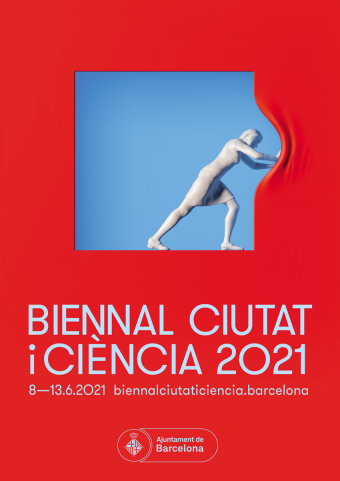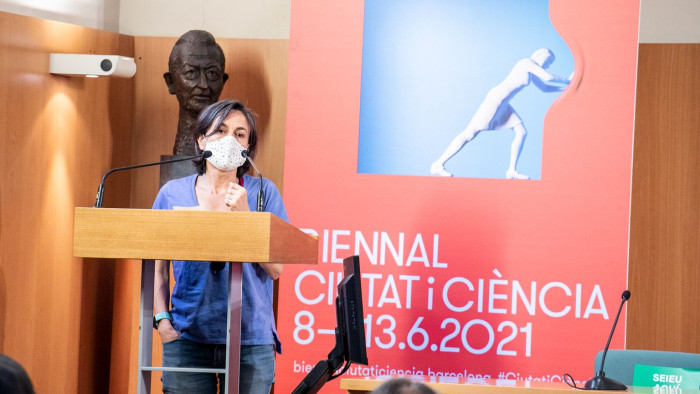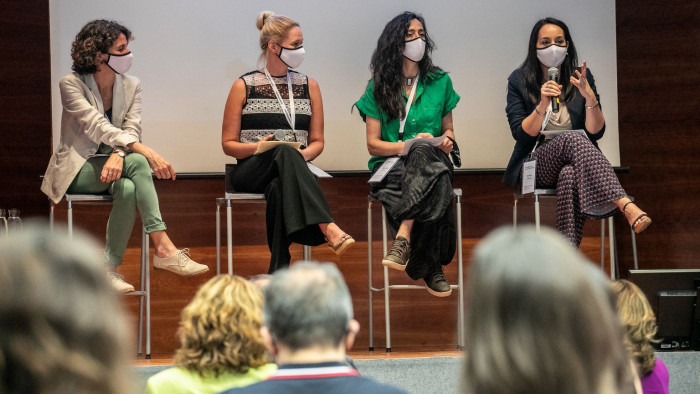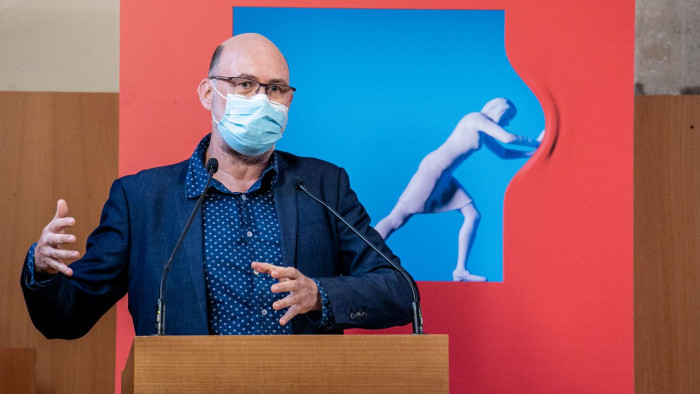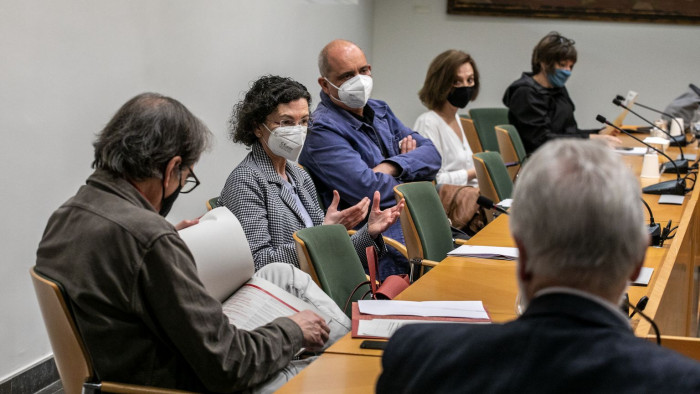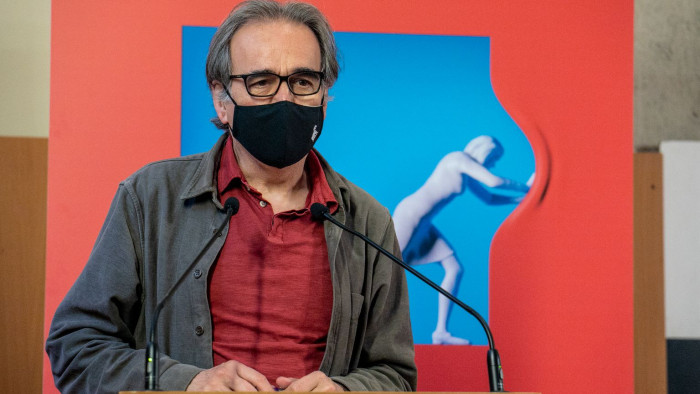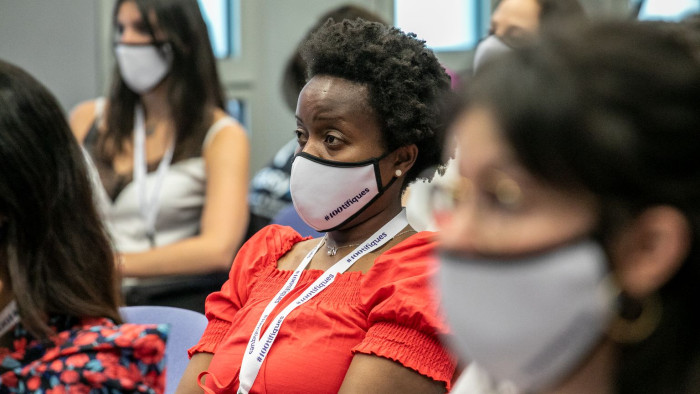2021 edition
The second Biennale focused on the concept of limits and brought together a total of 138 speakers from the world of research, outreach, thought and the arts who, together with the public, reflected openly on knowledge and to be able to explore science in all its dimensions.
The program was curated by Pau Alsina, professor and researcher at the Open University of Catalonia (UOC) and coordinator of Hac Te, Art, Science and Technology Hub; Joan Font, researcher at the Institute of Advanced Social Studies in Córdoba (IESA-CSIC); Toni Massanés, gastronomist and director of the Alicia Foundation; Núria Montserrat, ICREA research professor at the Bioengineering Institute of Catalonia (IBEC); Ángel Ramírez, political scientist, sociologist and researcher at the Institute of Advanced Social Studies in Córdoba (IESA-CSIC); Marta G. Rivera, research professor at INGENIO (CSIC-UPV) and researcher at the Department of Agroecology at UVic-UCC; Begoña Román, professor of Philosophy at the University of Barcelona and president of the Social Services Ethics Committee of Catalonia; Ricard Solé, ICREA research professor at Pompeu Fabra University (UPF) and director of the Complex Systems Lab; and Irma Vilà, multimedia engineer, curator of art, science and technology, and professor and researcher at the Open University of Catalonia (UOC).


